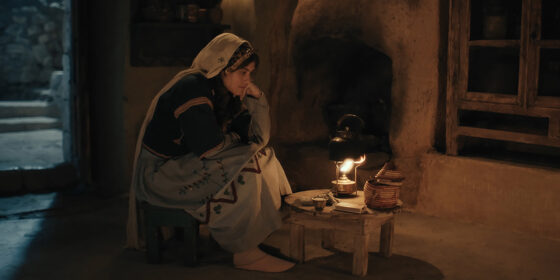TIFF 2021 | Farha (Darin J. Sallam, Jordan/Sweden/Saudi Arabia)

By Gabrielle Marceau
Farha opens with a familiar story: a young Palestinian girl, nearing womanhood, who is trying to determine the course of her life beyond the confines of tradition. Farha (Karam Taher) wants to go to school, but her father wants her to marry and stay in their village. This family conflict is interrupted when Israeli forces attack their village at the beginning of the Nakba in 1948, resulting in Farha being locked and sealed in a cellar by her father.
Farha spends the rest of the film trapped in the room, trying to stay alive and, eventually, escape. While her ambitions have been derailed, Farha does still experience a particularly harsh coming of age during her time in the cellar. Where she once spied through a parted curtain to hear her father’s plans for her future, she now peers through cracks in the cellar door to see the world’s unimaginable cruelties.
This story is told with care by Sallam, who is almost too affectionate toward her protagonist. While my sympathy (in terms of both the film and the still-raging real-world conflict it depicts) lies firmly with Farha and her oppressed and dispossessed people, Sallam’s film takes great pains to stack the moral deck: Farha’s friends are valiant and devoted to a one, while her pursuers are cartoonishly sadistic. There’s also a moment when Farha and her best friend are talking about their future, and the friend says, “When I grow up…” before being interrupted by the sound of a bomb. Perhaps subtlety is not the appropriate tone for a story about a horrifying reality, but this moment felt so artificial that I almost laughed. Even though the film’s emotional beats feel forced, the tale Sallam tells is a true one, which was originally related to the filmmaker’s mother by the real-life Farha. Sallam’s desire to pass this woman’s experience on to another generation seems genuine, but her often contrived execution of the story sells its real-world inspiration short.
Gabrielle Marceau

